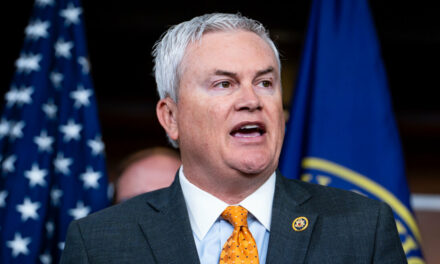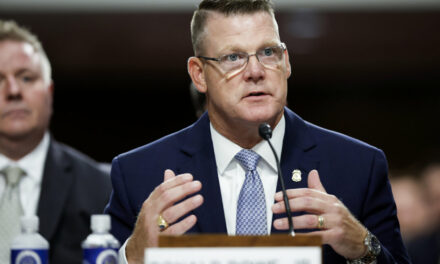We support our Publishers and Content Creators. You can view this story on their website by CLICKING HERE.
The bill passed with the support of eight Democrats.
The U.S. House of Representatives on Sept. 20 voted to overturn a Biden administration rule that sets tougher emissions standards for car manufacturers.
The joint resolution that passed in a 215–191 vote—with eight Democrats in support and one Republican in opposition—would nullify the Environmental Protection Agency’s (EPA) new restrictions on emissions from cars, light trucks, pick-ups, and vans for model years 2027 to 2032.
Although the rule does not explicitly impose an electric vehicle (EV) mandate, it is expected to force manufacturers to electrify more of their fleets to comply.
The resolution passed with the support of Democrat Reps. Henry Cuellar, Vicente Gonzalez, and Marie Gluesenkamp Perez of Texas, Yadira Caraveo of Colorado, Don Davis of North Carolina, Jared Golden of Maine, Marcy Kaptur of Ohio, and Mary Sattler Peltola of Alaska.
One Republican, Rep. Brian Fitzgerald (R-Pa.), voted against the measure.
Ahead of the vote, the White House announced its opposition to the resolution, contending that it would prompt uncertainty in the U.S. auto market and supply chains and cede the electric vehicle and battery markets to China.
The House Sustainable Energy and Environment Coalition echoed the administration’s view.
The American Energy Alliance (AEA) celebrated the bill’s passage as a victory for consumers.
The measure will now head to the Senate for a vote.
Democrats control the upper chamber by a razor-thin—51–49—majority thanks to several independent members who choose to caucus with the party.
One of those members, Sen. Joe Manchin of West Virginia, has been a vocal critic of the Biden administration’s energy policies—particularly on electric vehicles.
“This reckless and ill-informed rule will impose what is effectively an EV mandate without ensuring the security of our supply chains from nations like China and without a realistic transition plan that addresses our domestic infrastructure needs.”
The senator could be a key swing vote for Republicans in ensuring their resolution passes.
The president, however, has promised to veto the measure if it makes it to his desk.

 Conservative
Conservative  Search
Search Trending
Trending Current News
Current News 







